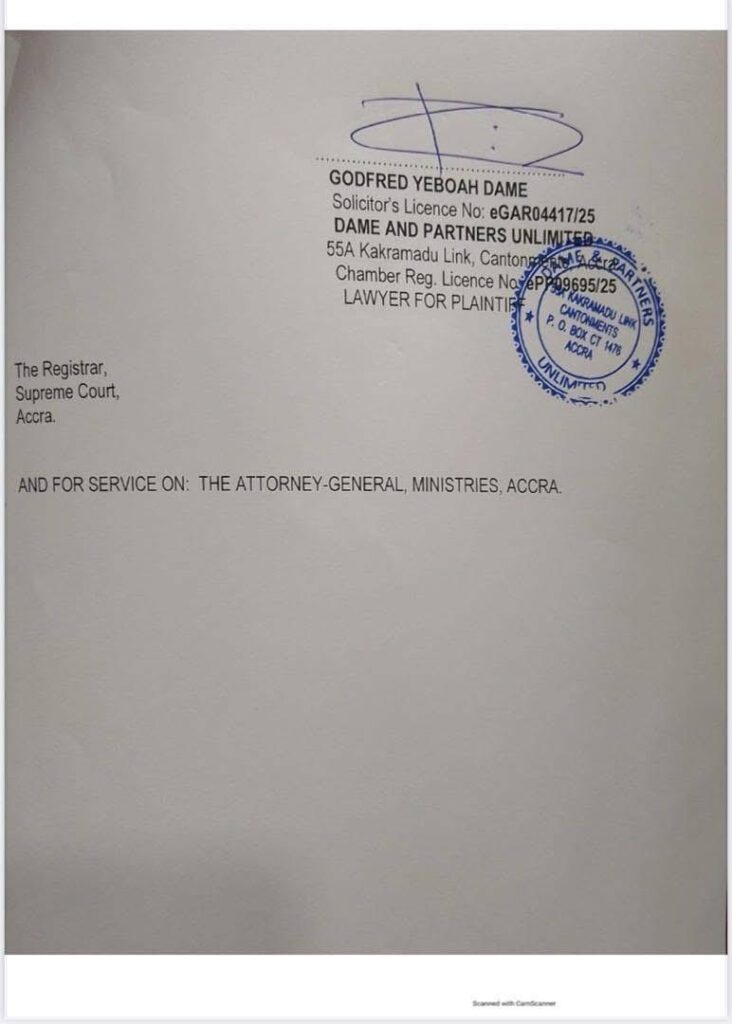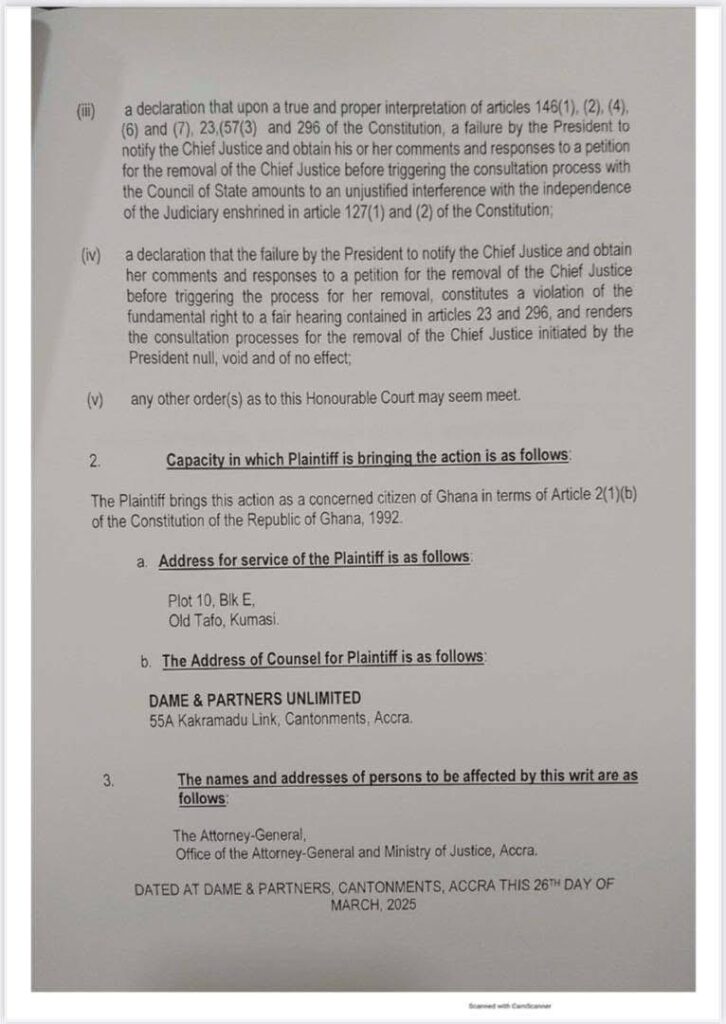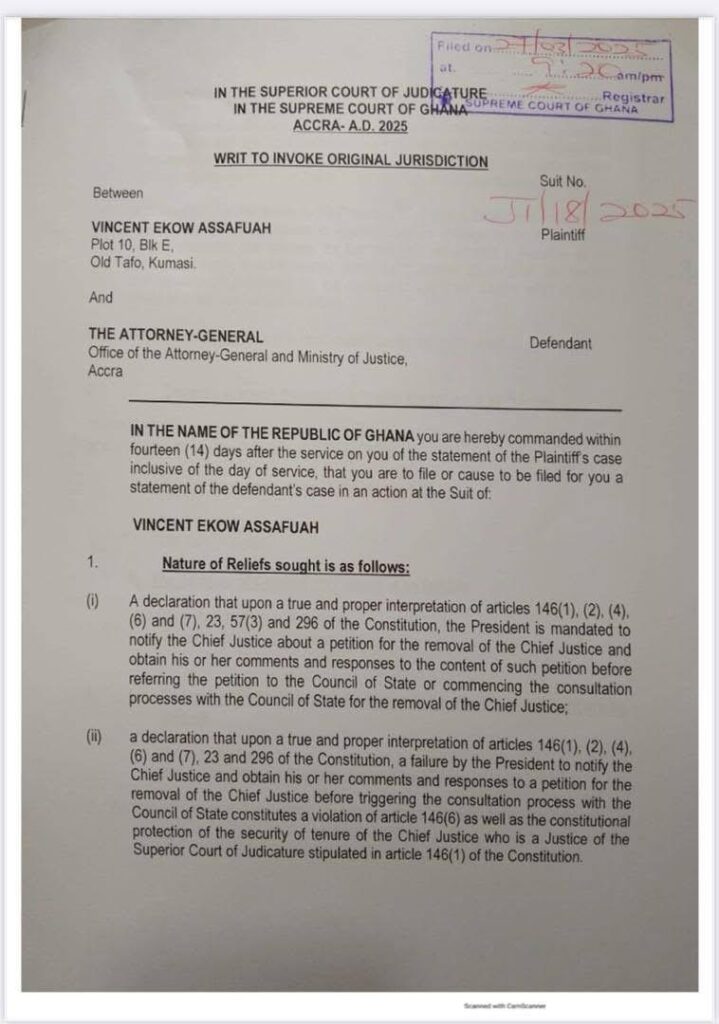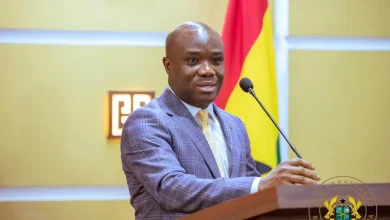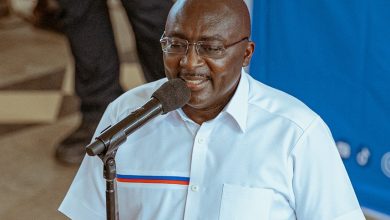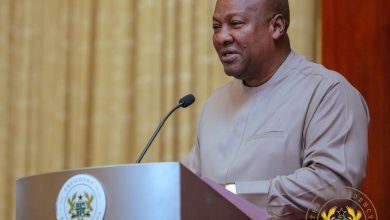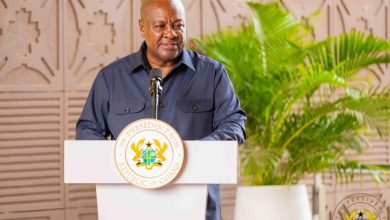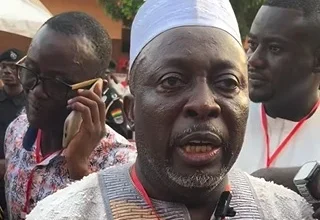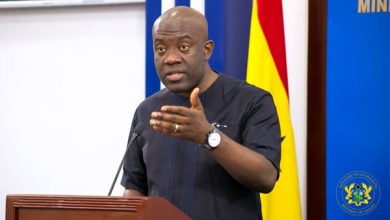Old Tafo MP Launches Legal Challenge Against Mahama’s Chief Justice Suspension
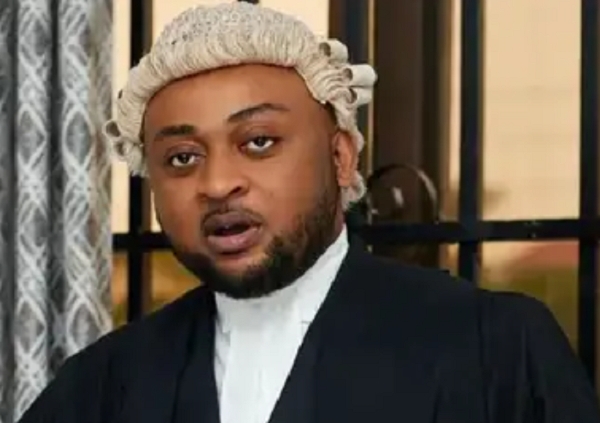
Vincent Ekow Assafuah, Member of Parliament for Old Tafo, has filed a lawsuit at the Supreme Court seeking to halt President John Dramani Mahama’s suspension of Chief Justice Gertrude Araba Esaaba Sackey Torkornoo.
The legal action follows President Mahama’s decision on April 22 to suspend Chief Justice Torkornoo after determining a prima facie case from three undisclosed petitions calling for her removal. The President, in consultation with the Council of State, established a five-member committee to investigate the allegations, as stipulated under Article 146(6) of the 1992 Constitution.
In his suit, Assafuah contends that the President’s actions violate constitutional provisions and threaten judicial independence. He argues that the Chief Justice was not allowed to respond to the allegations before the President initiated consultations with the Council of State, as required by Article 146(6) of the Constitution.
Assafuah, in his suit against the Attorney General, contends that under a correct interpretation of Articles 146(1), (2), (4), (6), and (7), along with Articles 23, 57(3), and 296 of the 1992 Constitution, the President is mandated to notify the Chief Justice about any petition for her removal and obtain her comments before consulting the Council of State.
He further claimed that any process initiated without the Chief Justice’s input violates her fundamental right to a fair hearing and renders the process legally void.
Vincent Assafuah is amongst others requesting “A declaration that the failure by the President to notify the Chief Justice and obtain her comments and responses to a petition for the removal of the Chief Justice before triggering the process for her removal constitutes a violation of the fundamental right to a fair hearing contained in articles 23 and 296, and renders the consultation processes for the removal of the Chief Justice initiated by the President null, void and of no effect”
The Attorney General is expected to respond within 14 days, after which the court will determine the way forward.
